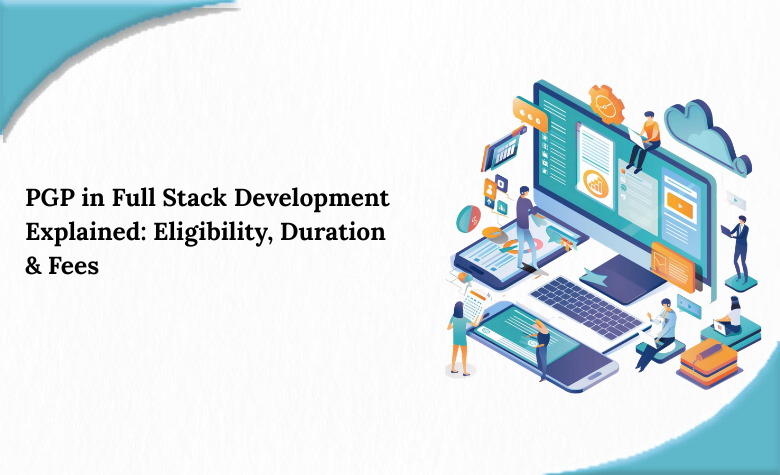Beginner’s Guide to Choosing the Right Marketing Analytics Course
- Hawkins University
- May 13, 2025
- 4 min read
Updated: Sep 25, 2025

Introduction:
In today's digital world, every click, view, and purchase generates data. Businesses that know how to interpret this data have a competitive edge. That’s where a Marketing Analytics Course becomes essential. It equips professionals with the ability to make informed decisions using real-time marketing data. Whether you're just starting your career or looking to upgrade your skills, understanding marketing analytics is crucial to success.
Marketing analytics refers to the process of measuring, managing, and analyzing marketing performance data to maximize return on investment (ROI). It involves tracking metrics across channels like social media, email campaigns, SEO, and paid ads. The goal is to uncover actionable insights that help businesses understand what works and what doesn’t.
A well-structured Marketing Analytics Course will teach you how to use data to drive strategy, improve customer engagement, and increase conversion rates.
Key Skills You’ll Learn in a Marketing Analytics Course
Enrolling in a Marketing Analytics Course provides hands-on experience with both foundational concepts and advanced tools. Here are some of the essential skills you’ll master:
Data collection and segmentation
Google Analytics and campaign tracking
A/B testing and performance metrics
Predictive modeling
Customer lifetime value (CLV) analysis
Data visualization using tools like Tableau and Power BI
Excel and SQL for data manipulation
Basics of machine learning for marketing
These skills are often bundled in a marketing analytics certificate program to boost your professional credibility.
Types of Marketing Analytics Courses
There are various ways to pursue a Marketing Analytics Course Online or offline, depending on your learning preference:
Short-term certifications: Great for upskilling quickly. These usually focus on tools and applications.
Professional certificates: Recognized programs that include assessments and hands-on projects.
Postgraduate diplomas: More in-depth and often suited for those considering leadership roles in marketing analytics.
Bootcamps: Intensive, fast-paced training to make you job-ready in weeks.
Choosing the right course format depends on your time, budget, and career goals.
Factors to Consider When Choosing a Course
To select the best Marketing Analytics Course, evaluate the following key aspects:
1. Course Content & Curriculum
Ensure the course covers both theory and application. Look for real-world case studies, projects, and tool-based learning. It should align with current industry demands.
2. Mode of Learning (Online vs. Offline)
A Marketing Analytics Course Online offers flexibility and access from anywhere, while offline courses provide direct mentorship and networking opportunities.
3. Instructor Credentials
Experienced instructors from marketing or analytics backgrounds offer better insights and practical knowledge.
4. Tools and Software Covered
Courses should include training in industry-standard tools like Google Analytics, Excel, SQL, Tableau, and Python.
5. Duration and Flexibility
Look for self-paced options if you’re a working professional or opt for structured learning if you prefer a classroom environment.
6. Cost and Certification Value
Choose a course that offers a recognized marketing analytics certificate. Ensure the certificate is valued by employers.
Top Tools Used in Marketing Analytics
Learning how to use analytical tools is central to a Marketing Analytics Course. Here are some must-know platforms:
Google Analytics: Track website and campaign performance.
Excel and SQL: For organizing and querying large datasets.
Power BI / Tableau: Create impactful dashboards.
R / Python: Basic scripting for deeper statistical insights.
CRM Tools (e.g., HubSpot, Salesforce): Understand customer behavior and segmentation.
Being proficient in these tools enhances your value in any marketing team.
Benefits of Enrolling in a Marketing Analytics Course
Investing in a Marketing Analytics Course Online or offline can provide several long-term benefits:
Gain data-driven decision-making skills
Improve marketing campaign effectiveness
Enhance your resume with a marketing analytics certificate
Open up high-demand roles like Marketing Analyst, Data Analyst, or Campaign Strategist
Better understand customer behavior and improve targeting strategies
These benefits make the course worthwhile for anyone aiming for growth in digital marketing roles.
Who Should Take a Marketing Analytics Course?
A Marketing Analytics Course is ideal for:
Marketing professionals aiming to upskill
Business owners seeking better marketing ROI
Fresh graduates wanting to break into digital marketing
Data analysts shifting to marketing roles
Entrepreneurs and freelancers who want to build data-backed campaigns
Whether you're new or experienced, mastering marketing analytic techniques can transform your approach to marketing.
Career Opportunities After Completing a Course
With a marketing analytics certificate, you can qualify for a variety of in-demand roles such as:
Marketing Analyst
Digital Marketing Specialist
Data Analyst – Marketing
Campaign Performance Manager
Customer Insights Analyst
SEO/SEM Analyst
These roles are increasingly critical in organizations that rely on data to shape strategy and customer outreach.
Conclusion:
A Marketing Analytics Course is more than just an academic credential. It’s a pathway to becoming a skilled professional who can convert data into strategy. In a digital-first world, the ability to analyze marketing performance is a highly valuable asset. Whether you're new to marketing or looking to grow in your role, choosing the right course can set the foundation for a successful and data-driven career.
Frequently Asked Questions (FAQs)
Q1: Is a marketing analytics course suitable for beginners?
Yes, most courses start with foundational topics and gradually move to advanced tools and techniques.
Q2: What is the duration of a typical Marketing Analytics Course Online?
It can range from a few weeks for short courses to several months for professional certifications.
Q3: Do I need coding experience to learn marketing analytics?
Basic understanding of Excel or SQL helps, but many courses are designed to teach you everything from scratch.
Q4: What is the value of a marketing analytics certificate?
It demonstrates your ability to analyze data and improve marketing performance, making you more attractive to employers.




Comments